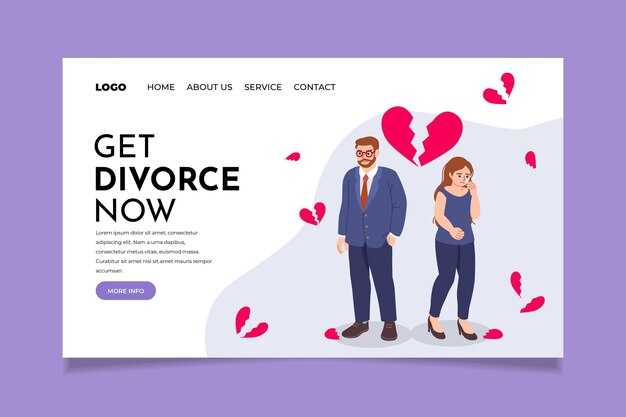The instant you open up with vulnerability — sharing how you feel, explaining your hurt or your point of view — and the person across from you answers with a counterattack or a complaint, the conversation has already shifted. Instead of holding space for what you’ve said, they use it as an opening to list their own grievances: “You do this to me,” “I never complain,” or they dismiss you as overly sensitive and brush it off as mere difference of perspective. Once that happens, there’s little reason to keep pushing the discussion. You may feel compelled to keep talking — maybe they didn’t hear me, maybe I can convince them this matters more — but the truth is they either already understand and refuse to do the hard work of validation, or they genuinely cannot. Validating someone else’s experience requires effort: it’s difficult to listen without defensiveness, to allow another person to speak from the heart about something you did or didn’t do and respond, “Your feelings matter to me — tell me more, I want to be a safe place.” It’s far easier to default to blame, defensiveness, or outright dismissal. And when those defaults take over, the fight can stretch on for an hour or more — but to what end? What actually changes? Practically nothing. If anything, the result is deeper hurt, a stronger sense of being unheard, and greater distance between you than when the exchange began. So stay alert to the warning signs in yourself and in the other person. It is not your responsibility to convince someone to care about what’s in your heart, nor is it your duty to find the exact phrase that will prevent them from invalidating you or accusing you of never being satisfied. Don’t accept the bait of backing down and apologizing because they insist you’re refusing to accept them. This pattern reveals a person who lacks the skills for conflict resolution; they are not interested in curiosity or empathy. There is no point in wasting an hour arguing about nothing, only to discover they never intended — or were never able — to understand you. Stop arguing with people determined to misinterpret you. Often, the real remedy requires a skilled professional: therapy can teach someone how to break free from the negative cycle when they don’t value or know how to change their behavior. If they refuse to seek help, take that refusal as clear information: they are not willing to do the work necessary to make the relationship healthy.

Practical steps you can use instead of staying in a draining loop:
- Recognize warning signs: immediate counterattacks, minimization (“it’s not a big deal”), shifting blame, name-calling, dismissal of your feelings, and repeated refusal to listen. If these appear reliably, treat the interaction as unlikely to be productive.
- Use a short boundary script: Keep statements simple and non-reactive — for example, “I’m not willing to continue this conversation while you’re blaming me. Let’s pause and come back when we can speak calmly.” Repeat it as needed and follow through on the pause.
- Offer a constructive option: If you want to keep the relationship and feel safe doing so, propose a healthier way forward: “I want to be heard and I want to hear you. Can we try a 20-minute discussion where we each speak without interruption?” If they decline, that refusal is meaningful.
- Use clear “I” statements: Keep the focus on your experience to reduce defensiveness: “I felt hurt when X happened. I need Y to feel safe.” Short, specific requests are easier to respond to than broad complaints.
- Limit engagement and consequences: Decide in advance what you’ll do if the person continues to invalidate you — leave the room, stop responding to texts for a set time, limit contact. Consistency teaches boundaries.
How to evaluate whether to invest more effort or step away:
- Is the person able to ever acknowledge your feelings without turning it into an attack? Occasional clumsiness is different from a consistent pattern of refusal.
- Do they show curiosity and willingness to learn or change (ask questions, apologize, try different approaches)? If not, change is unlikely without outside help.
- Are you safe — emotionally and physically? If you feel gaslit, controlled, or unsafe, prioritize your safety and seek outside help immediately.
- Have attempts at repair been followed by lasting change, or do problems repeat without progress? Repetition without repair suggests the relationship cannot reach the level of care you need.
Context matters:
- Romantic or family relationships: If the relationship is important and patterns are recent, couples therapy or family therapy can create a structured environment for learning new skills. If the other person refuses therapy, use their refusal as data when deciding how much to invest.
- Work relationships: Document interactions, set firm boundaries in writing when necessary, and involve HR or a manager if the behavior undermines your well‑being or productivity. Keep communications professional and concise.
- Дружба: You can set limits on contact and choose to protect your emotional energy. Friends who consistently invalidate you are not serving as true support.
Short examples of effective, low‑escalation responses you can adapt:
- “I hear you, but I’m speaking about my experience right now. Let’s pause until we can both listen.”
- “This conversation is going in circles. I’m going to take a break and return when we can be calm.”
- “I’m open to fixing this if you’re willing to try a different approach. If not, I need to step back for my own well‑being.”
When to get help: if you feel stuck, repeatedly hurt, or uncertain about your next move, a therapist or counselor can help you clarify boundaries, rehearse scripts that feel authentic, and decide whether the relationship should continue. For legal, safety, or workplace issues, consult the appropriate professionals or authorities.
Final note: protecting your emotional health is not selfish. Walking away from unproductive fights and from people who refuse to validate you preserves your energy for relationships where empathy and growth are possible. You cannot force someone to mature, but you can choose how much of your life to let them affect.


 Stop Fighting with Immature People">
Stop Fighting with Immature People">

 My ego couldn't handle her honesty, can yours?">
My ego couldn't handle her honesty, can yours?">
 When you feel like Roommates in your Relationship">
When you feel like Roommates in your Relationship">
 The Single Greatest Predictor of Divorce is…">
The Single Greatest Predictor of Divorce is…">
 Do THEY care about YOUR needs? || How to succeed in Relationships">
Do THEY care about YOUR needs? || How to succeed in Relationships">
 Their Life Is a Mess and THEY BLAME YOU">
Their Life Is a Mess and THEY BLAME YOU">
 Why You’re Always Stuck (It’s Not Laziness — It’s Trauma) + How to Break Free">
Why You’re Always Stuck (It’s Not Laziness — It’s Trauma) + How to Break Free">
 Don’t waste your Relationship like I did.">
Don’t waste your Relationship like I did.">
 This Is How Avoidants Possess You Physically And Mentally And You Never Even Notice | Mel Robbins">
This Is How Avoidants Possess You Physically And Mentally And You Never Even Notice | Mel Robbins">
 I asked my Wife about Sexual Consent, didn’t go great.">
I asked my Wife about Sexual Consent, didn’t go great.">
 Why Avoidants Act Fine After the Breakup And Why They Always Come Back | Mel Robbins Best Speech">
Why Avoidants Act Fine After the Breakup And Why They Always Come Back | Mel Robbins Best Speech">